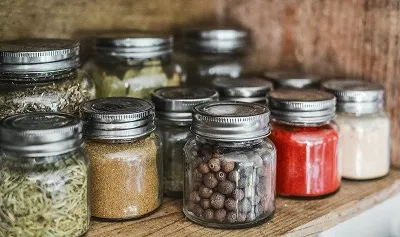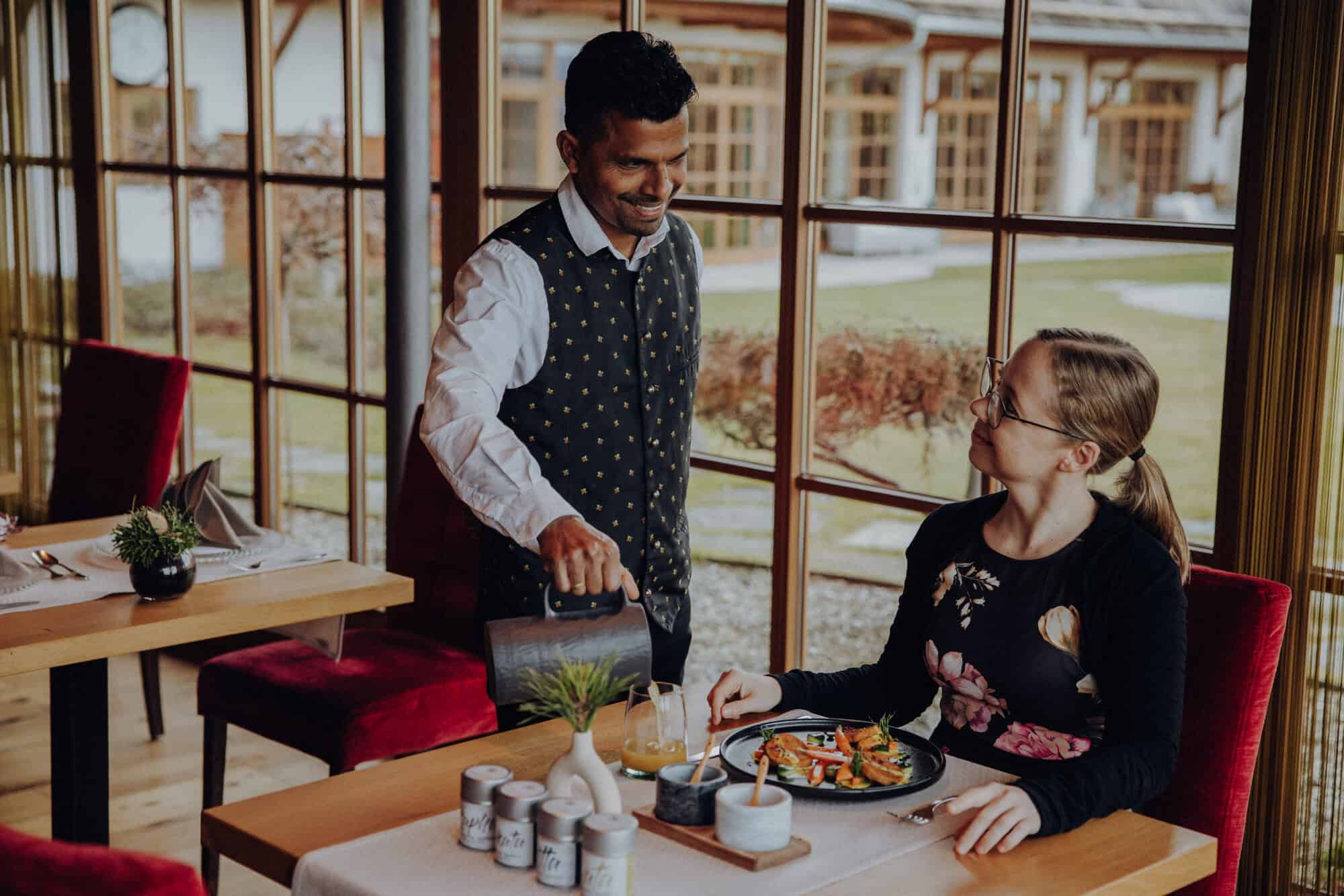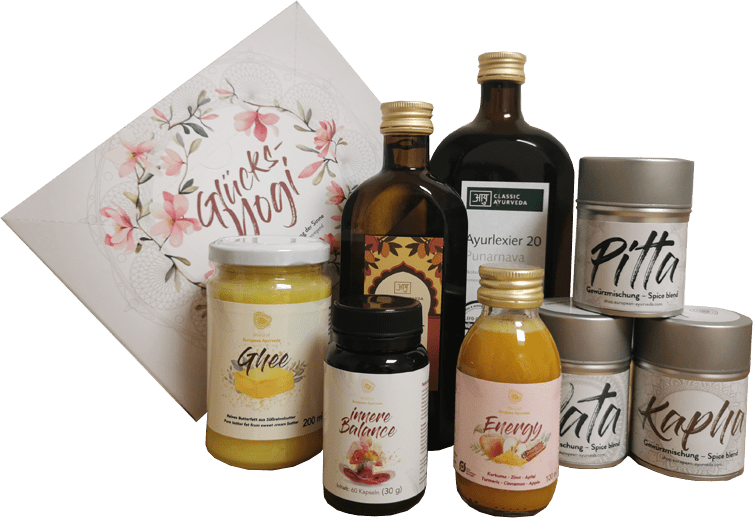Autumn and winter are considered to be the cold seasons - but does that mean you have to feel tired in wind and weather? Of course not! Because there are enough Ayurvedic tips to get you through the winter healthy and happy. From yoga practice to the calming effect of nutrition: We explain what is important for a happy winter time!
What is different in winter?
Probably the biggest difference in winter is that at this time the vata and kapha flow is much stronger. To be a little more specific: From mid-October until shortly before Christmas, agni is particularly strong and vata characteristics increasingly build up. From around Christmas until the end of February, Vata then reaches its highest expression and Kapha is increasingly built up.
And what does that mean for your everyday life? Basically, that your digestive fire is at its most active in the middle of winter and that you can therefore digest even heavy, fatty foods well. Your body is even dependent on a rich diet in order not to break down body tissue.
By eating nutritious food, you also keep your immune system strong. Typical winter illnesses such as colds or flu will then not affect you at all. But what should you do if you often feel low on energy?
More energy in winter through Ayurveda
If you often lack energy in autumn and winter, it may be due to your diet. Yes, you read that right: Even though your body needs more nutritious meals now, you should still not overdo it.
How to eat right in winter
When we eat more than we need, it is a lot of work for the Agni. Therefore, try to eat only enough of your winter meals to avoid sluggishness. After all, the basic rule in Ayurveda is: always leave about a third of your stomach empty, then you will not feel weighed down and tired after eating.
How to develop a winter routine
Apart from nutrition, how you go through the day also plays a big role in your energy reserves in winter. We feel best in winter when we can develop a routine that gives us stability. For example, always go to bed around the same time and preferably a little earlier to get more sleep.
If your daily routine allows it, ideally start the day with a yoga session. This will wake you up much faster. Afterwards, rub yourself thoroughly with warm oil and let it work for a short time before showering off the residue with warm water. The combination of light exercise and massage stimulates the circulation.
It should be no secret anyway that a warm shower in winter is wonderfully pleasant. Apart from that, Ayurveda offers a number of other ways to prevent the annoying inner cold from arising in winter. You can find the best tips here in the text and summarised in our video:
What to do against inner cold in winter?
It's not an insider tip either, but it's an effective one: If you get cold quickly in winter, warm food and drink will also help, in addition to warm clothing. Take as many warm meals and drinks as possible.
Tip 1: The right drinks
It helps, for example, if you always have a thermos flask of hot water with you or drink a glass of warm ginger water in the morning on an empty stomach. Try to implement the warmth principle consistently. This means: Don't drink a cold drink after sport and exercise, but rather something (lukewarm).
Tip 2: The right form of movement
What else helps against the feeling of cold? Exactly: exercise! But what is best for you depends on your constitutional type. To stimulate Kapha, for example, intensive types of exercise such as jogging, fast walking or ski tours are good. To calm Vata, on the other hand, you prefer gentle forms of exercise such as longer yoga sessions. By the way: Many pranayama breathing exercises quickly heat up from the inside, keyword fire breath!
Tip 3: The right company
Of course, it's always good to meet someone who is important to us. But especially in winter, it helps even more to meet up regularly with the people you like. Because a cosy get-together like this automatically warms your heart a little, doesn't it? Oh yes: In late winter, it's nice to have a glass or two of red wine at such a get-together.
Tip 4: The right atmosphere
Good company is especially important in winter. However, it is equally important to find a balance and take some time out. Make yourself really comfortable at least once a week and do only what you feel like: Take a long bath, read a good book, meditate, listen to music... The perfect companions for such a cosy evening are incense sticks, candlelight and warm cuddly socks!
The best tips for Ayurveda winter nutrition
We've talked about nutrition a few times so far - it's time to take a closer look! Let's start with the basic goal of Ayurvedic nutrition in winter: Kapha should be soothed without stimulating Vata.
It can just as well be the other way round, depending on individual disposition. The important thing is simply to establish a balance. These foods, for example, are very well suited for this purpose:
[su_note note_color="cbe09d" text_color="#333333″ radius="3″ class=""]
- Fruits: cooked/baked apples, other local fruits, dates soaked in cream and cinnamon, figs or sultanas.
- Vegetables: beetroot, spinach, garlic, mushrooms, leek, Brussels sprouts, salsify
- Grains: oatmeal, wheat, basmati rice or brown rice, rye, barley, amaranth
- Nuts and seeds: Hazelnuts, walnuts, almonds, pistachios, pumpkin and sunflower seeds
- Dairy products: (warm) goat's and cow's milk, sour cream, pasture butter or ghee
- Oils: olive, sunflower, corn, almond and sesame oil
[/su_note]
If you eat a vegan diet, you should eat a lot of nuts, seeds and nutritious vegetables in winter to get enough energy. For those who are not vegan or vegetarian, cream soups, meat stews and desserts with honey are good options.
Of course, the same applies in winter as at any other time of year: listen to your body. For example, if you feel over-satiated and lethargic, you can simply take a day of water or juice fasting. And don't forget: Eat "comfortably", i.e. slowly and without distractions. This way you can really enjoy your meal and notice more quickly whether you are full.
What constitutes a Vata-soothing diet?
As already mentioned, it is important to calm Vata in winter. In terms of nutrition, this means, among other things, that nourishing, cooked vegetables should always be refined with a little ghee. In general, you can always use Ayurvedic butter for cooking.
Sweet, warm meals have a Vata-reducing effect. This can be a warm cereal porridge made of oatmeal or semolina for breakfast or sweet, ripe fruit. But it can also be a casserole with sweet potatoes or carrots - just as you like it!
Other foods suitable for Vata are beetroot and peas. From the spice rack, you can help yourself to plenty of aniseed, nutmeg, cloves and basil. Apart from that, you should avoid caffeinated drinks like coffee and black or green tea to calm your Vata. But don't worry: thanks to many good Ayurvedic drinks, this should not be difficult for you!
Warming foods according to Ayurveda

In Ayurvedic cooking, spices are the preferred way to generate warmth. The beauty of it is that you can integrate spices into your meals as you please - it never gets boring!
In addition to the all-rounder ginger, fenugreek, chilli, cinnamon and turmeric have a warming effect in winter. Or how about a spiced tea that stimulates the circulation and generates warmth from within? Simply add half a teaspoon each of dried ginger, cinnamon and cloves to your regular favourite tea.
As you can see, there are many ways to feel good even in winter. Just because it's getting colder outside and the days are a bit shorter, this season doesn't have to be tedious. With this in mind, we wish you a cosy autumn and winter time and much joy with our Ayurveda winter tips!





